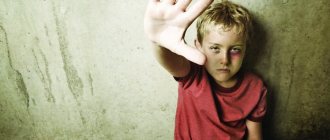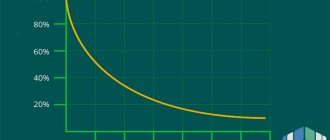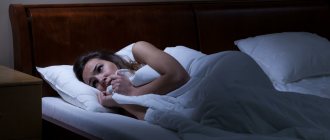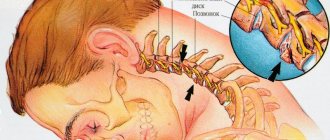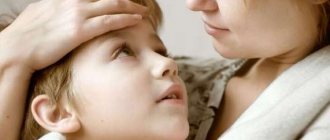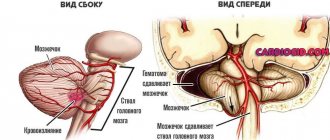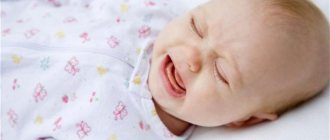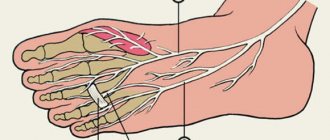Dementia: general description
A disease in which there is a gradual decline in memory, deterioration of thought processes, and disturbances in the emotional sphere is called dementia.
Sometimes it is better known as senile insanity or dementia. In most cases, dementia is accompanied by organic brain damage and is irreversible. Dementia develops gradually, but if its cause is vascular disorders, sudden irreversible changes are possible. The disease goes through 3 stages: mild, moderate and severe. With a mild degree, a person continues to communicate with others, but increasingly withdraws into himself. Forgets words, faces of acquaintances, appointments.
Over time, the condition worsens, the patient does not find his home, does not understand what day of the week it is. With a moderate degree of the disease, difficulties arise with dressing - a person forgets to dress, puts on light shoes in winter, goes outside in a fur hat in summer. Sometimes he may not eat for a day, sometimes he eats several times in a row, forgetting that he has already had lunch. Difficulties appearing in taking medications.
Movements are impaired, tremors of the arms, legs, and head appear. The muscles become rigid, movements lose freedom. The person communicates with practically no one. Hallucinations and delusions may occur. The patient needs help more and more. He cannot be left alone for a long time, so that he does not harm himself, leaves, or gets lost.
With severe dementia, the patient needs constant care. Often he becomes aggressive, does not understand what is being said to him, where he is, what he is doing. Completely loses self-care skills, does not recognize loved ones, and in very severe cases only lies down.
How to treat dementia and what medications to take depends on the severity of the disease and the main symptoms.
How to become the owner of perfect memory?
Daily stress does not pass without leaving a trace. They have a direct impact on the thought process when there is too much information, much of which is unnecessary. As a result, a person begins to forget most of the important “little things”, for example, when going shopping, they do not remember what they intended to buy, or whether they turned off the gas in the house when leaving. Forgetfulness cannot be ignored at any age, since the situation will only get worse with age.
Among the available ways to improve memory and brain activity, the following are considered the best:
- Enrichment of the diet with carbohydrates. The structure of these nutrients is converted into glucose. To replenish the supply of this substance, it is enough to have breakfast with an omelet, a slice of bread baked from whole grains, and also an omelette.
- Dancing and sports. You don't have to practice for hours. It is enough to perform some exercises to stimulate blood flow to the brain. Scientific studies have shown that people who move actively absorb information 20% faster than those who neglect physical exercise.
- Typing. The development of memory is well facilitated by texts typed in unusual text, but the effect is not noticeable immediately, but gradually.
- Search for information. Don't miss the chance to learn more than just fulfill your job responsibilities. This will undoubtedly help stimulate brain activity.
- Record places in memory. People parking their car in a parking lot can stand next to it for a while and look left or right to remember where the car is.
- A small amount of quality alcohol. A small portion before dinner helps develop memory well, as it stimulates blood circulation.
- High-quality teeth cleaning using dental floss. A large number of bacteria remain on the gums during the day from the food consumed during the day. And if you do not get rid of them carefully, they have a bad effect on the functioning of all organs.
These simple and affordable ways to improve memory are quite easy to implement into your life.
Principles of treatment
The treatment of dementia requires accuracy, a clear understanding of the diagnosis, and the dynamics of the pathology. Care and prevention play an important role.
Therapy is prescribed depending on the stage of the disease, the intensity of damage to the emotional, cognitive and motor spheres. If dementia is caused by another pathology, for example, a stroke, treatment for this disease is carried out in parallel.
Immediately after the diagnosis is made, the patient's loved ones need to take responsibility for taking their medications. Or assign a caregiver to monitor the treatment. Tablets should be removed from public access, their intake should be strictly controlled. It is important to monitor for side effects and consult a doctor if the patient's condition worsens.
Treatment for people with dementia depends on the cause and stage of the disease process. Therapy cannot be delayed, because modern drugs are most effective at the initial stages of the process. In the vast majority of cases, dementia cannot be cured, but a properly selected treatment regimen can extend the period when the patient is capable of independence and self-care.
Compliance with the necessary recommendations allows you to increase the effectiveness of the therapy:
- regularity of intake;
- positive changes develop some time after the start of treatment;
- the effectiveness of medications may decrease as the pathological process progresses;
- the attending physician must be informed in a timely manner about the development of adverse reactions;
- The dosage of medications will need to be adjusted at different stages of the disease.
Patients with dementia suffer from memory impairment, so medication intake must be monitored to avoid skipping or overdosing.
Useful tips
In addition to the fact that dementia prevention is constantly required, you should also follow some recommendations on how to keep your mind clear as long as possible in old age:
normalize your sleep. It should be remembered that chronic lack of sleep provokes loss of coordination and impairs memory.
Therefore, it is very important to go to bed on time and avoid night vigils; you need to learn to cope with stressful situations that often occur in life. Stress, depression and apathy are the first syndromes that disrupt the process of assimilation of information, impair the learning process and lead to insomnia; the brain constantly needs to be nourished, not only with vitamins and minerals, but also with new information
You can train your mind not only by reading, but also by logical or intellectual activities: solving crosswords, assembling puzzles, playing a musical instrument, learning a foreign language, dancing, etc.; You shouldn’t give up social communication with other people in life - even from younger interlocutors there is always something to learn; you need to learn to normalize your daily routine: work, rest, sleep; You shouldn’t deny yourself small joys: meeting friends and loved ones more often, visiting theaters, museums, cinema, etc.;
you should follow the news that is happening in the world and in the city, thanks to this, your horizons and knowledge develop; You should never dwell on the same bad thoughts and events for a long time, you need to learn to switch to a positive way; for memory training, studying poems or songs, memorizing the phone numbers of your relatives and friends is perfect; From time to time you need to change your old habits and experiment more in order to diversify your life a little. That is, you can go to work on different routes, change your diet every day, rearrange your home, etc. The more positive changes and emotions there are in life, the less likely it is to develop dementia; you should get out of the city more often and be in nature, as this helps to get rid of stress and city bustle, and gives the brain time to take a break from everyday problems; and no matter how trite it may sound, you just need to learn to appreciate and love your life.
Of course, no one is one hundred percent immune from the development of one of the existing forms of dementia. However, everyone can try to prevent the onset of the formation of this pathology by resorting to simple preventive measures and changing their lifestyle.
Drug treatment for dementia
After selecting medications, you should be prepared to take them on a regular basis, since dementia takes a long time to be treated. Before starting therapy, it is necessary to diagnose the disease that caused dementia. Dementia can be cured completely only if it is the result of reversible changes in the endocrine system or internal organs.
Treating dementia with medications
| Group of drugs according to degree of importance | Pharmacological group | Drug name |
| First | Inhibitors of cholinesterase (an enzyme that breaks down the important neurotransmitter acetylcholine) | Donepezil Rivostigmine Galantamine |
| Second | Drugs that interact with specific receptors and reduce the toxic effect of the neurotransmitter glutamate | Memantine (Akatinol) |
| Third | Vascular agents and nootropic drugs | Pentoxifylline (Trental), Cavinton (Vinpocetine), Piracetam, Nootropil, Cortexin, Cerebrolysin |
| Blood cholesterol stabilizers - statins | Atorvastatin, Rosuvastatin, Simvastatin, Lovastatin | |
| Estrogen hormones | Estrodiol | |
| Unsaturated fatty Acids Anti-inflammatory drugs | Omega-3, Arcoxia fish oil, Ibuprofen, Diclofenac, Meloxicam | |
| Vitamin preparations | Tocopherol, Cyanocobalamin, Pyridoxine |
Modern treatment of dementia, accompanied by progressive destruction of nerve cells, requires the mandatory prescription of cholinesterase inhibitors and memantine. These funds are necessary for the following types of senile dementia:
- Alzheimer's disease;
- Pick's disease;
- Parkinson's disease;
- dementia after a stroke.
The protocol for the treatment of dementia involves the administration of Donesepil or Rivostigmine, often the drugs are combined with Memantine. Cholinesterase inhibitors promote increased synthesis of acetylcholine, which facilitates the conduction of nerve impulses between surviving neurons.
An excess of glutamate, which is formed during the destruction of neurons, leads to overexcitation of the nerve cell. As a result, the necessary signals are not recognized and new information is not absorbed. Memantine removes excess neurotransmitter, causing the neuron to become more receptive to signals.
Therapy with anticholinesterase drugs and Memantine should be carried out without interruption; it is possible to prescribe only one drug. Such methods of treating dementia can slow down the rate of degeneration of nerve cells and slow down the loss of mental functions.
Treatment of vascular dementia in older people is accompanied by the prescription of medications to improve cerebral circulation and metabolic processes in the brain.
After a stroke, some neurons die; the goal of therapy is to stimulate the activity of neighboring areas that can restore functional deficits. Drugs to improve cerebral circulation
| Drug group | Drug name | Feature of the action |
| Antiplatelet agents | Pentoxifylline, Trental, Dipyridamole, Curantil, Agapurin | Helps improve blood flow, prevents the formation of microthrombi |
| Means for improving blood microcirculation | Cavinton, Vinpocetine, Nicotinic acid, Xanthinol nicotinate | Eliminate vascular spasms, activate blood circulation |
| Nootropics | Piracetam, Nootropil, Pyramiracetam | Improves metabolism in brain tissue, stimulates the formation of interneuron connections |
| Extracts from animal brain matter | Cortexin, Cerebrolysin, Ceregin | Stabilizes the nerve cell membrane, facilitates the conduction of nerve impulses |
| Antihypoxants | Improves oxygen supply to cells, reduces the effects of oxygen starvation | Mexidol, Mexiprim, Mildronate |
A vascular treatment for dementia is indicated for patients with dementia of any origin, as stimulation of blood circulation inhibits the death of neurons and helps preserve mental functions.
Drug treatment of dementia involves influencing low mood levels, aggressiveness, anxiety, and emotional arousal. To reduce negative manifestations, the following groups of drugs are prescribed:
- neuroleptics (Tizercin, Rispolept);
- tranquilizers (Nitrosepam, Sonapax, Elenium);
- antidepressants (Fluoxetine, Mianserin);
- amino acids that stimulate the inhibition process (Glycine, Glycised);
- sedatives of plant origin (tablets of valerian, motherwort, mint, lemon balm).
Neuroleptics, tranquilizers or antidepressants are prescribed in long courses with mandatory breaks. Effective treatment of senile dementia at home allows you to prolong the initial period of the disease.
Sleeping pills
Sleep disturbances worsen the course of dementia, so the standard of care for dementia involves the use of sleeping pills. Drugs that improve sleep should not cause dependence or drug withdrawal syndrome. Melatonin and Ramelteon meet these requirements. These drugs are taken in the dark, when the patient is already in bed. Antidepressants with a sedative effect (Trazodone) help you fall asleep.
It is important that the bedroom is well ventilated before going to bed, and that the patient takes walks in the fresh air whenever possible. Aromatic oils (mint, lemon balm, lavender) that can be inhaled or added to a warm bath help to relax.
The following groups of medications help to activate brain activity:
- estrogenic hormones;
- vitamins (tocopherol, cyanocobalamin, pyridoxine);
- unsaturated fatty acids (omega-3);
- amino acids (taurine, glycine, lecithin);
- tonics (tincture of ginseng, eleutherococcus);
- gingko biloba.
The treatment regimen for dementia should include a set of methods that affect various parts of the pathogenesis of the pathological process.
Herbal treatments for dementia can be used as an adjunct to drug therapy. This method is characterized by the absence of side effects and good tolerability at any stage of the pathological process. To stimulate mental activity, decoctions and infusions of periwinkle, barberry, fruits and flowers of hawthorn are used, which treat dementia.
To increase the overall tone of the body, alcohol tinctures of Leuzea, Rhodiola, and Chinese lemongrass are used. Dandelion, chicory, elecampane, calamus and wormwood activate the pituitary gland and hypothalamus. To stabilize the emotional background, infusions from the rhizomes of valerian and hogweed are used; St. John's wort and oregano reduce the manifestation of depression.
Treatment of dementia with traditional methods until recovery is possible with mental changes against the background of reversible diseases of internal organs and blood vessels (hypofunction of the thyroid gland, diseases of the heart and cerebral vessels in the initial stages).
What drugs to choose to improve memory and brain activity?
Memoplant
You can activate and stimulate memory not only by using pills, but also by using various folk remedies:
- Clover tincture. To prepare a homemade preparation, you need to pour 500 ml of vodka into the clover inflorescences and place them in a cool place for 14 days. A tablespoon of this home remedy before bed is enough to improve clarity of consciousness and mind, and get rid of noise in the head.
- Horseradish with lemon. The product is easy and simple to prepare. It cleanses blood vessels and normalizes blood circulation. Juice made from 3 lemons is mixed with a jar of horseradish and 3 tablespoons of honey. This mass is left in the refrigerator for 3 weeks, and then taken a teaspoon twice a day.
- Pine young buds. They bloom in the spring. There is no need to cook anything from the buds; they are simply chewed before eating, which helps restore memory and slow down the aging process.
Nutrition has a positive effect on the body and memory. It should be rich in protein. The diet must contain dried fruits, baked apples or potatoes, stewed carrots, walnuts, sunflower seeds, salads prepared in olive oil, as well as dark chocolate. Frozen blueberries and fresh blueberries have a positive effect on visual acuity and brain circulation.
| Drug name | Age restrictions | Doctor's prescription | price, rub. | Rating* |
| Phenotropil (editor's choice) | up to 18 years old | not needed | 880 — 1140 | 9,5 |
| Nootropil | up to 3 years | needed | 130 — 330 | 8,5 |
| Memoplant | up to 18 years old | not needed | 600 — 1200 | 8 |
| Cavinton | up to 18 years old | needed | 170 — 730 | 8 |
| Aminalon | No | not needed | 120 — 230 | 8 |
| Bilobil | up to 18 years old | not needed | 260 — 1000 | 7,5 |
| Divaza | up to 18 years old | not needed | 260 — 350 | 7,5 |
| Piracetam | No | needed | 30 — 140 | 7,5 |
| Encephabol | No | needed | 650 — 1000 | 7,5 |
| Vitrum memory | No | not needed | 530 — 2200 | 7,5 |
| Undevit | No | not needed | 30 — 90 | 7 |
| Ginkgo biloba | up to 18 years old | not needed | 100 — 2000 | 7 |
| Glycine D3 | No | not needed | 180 — 500 | 7 |
| Picamilon | No | needed | 70 — 170 | 7 |
| Cerebrolysin | No | needed | 660 — 1500 | 7 |
| Glycine | No | not needed | 50 — 200 | 6,5 |
| Intellan | No | not needed | 180 — 230 | 6,5 |
| Noofen | up to 8 years | not needed | 70 — 470 | 6,5 |
| Fezam | up to 5 years | needed | 240 — 360 | 6 |
* The rating was calculated based on a combination of factors: side effects, availability of a prescription from a doctor, cost, reviews
Mild degree
In the initial stages of dementia, treatment is prescribed with drugs that will help:
- reduce depression;
- normalize emotional state;
- correct memory;
- restore thinking and speech.
Antidepressants
Venlafaxine promotes the production of serotonin and dopamine, hormones of good mood and pleasure. Along with improving mood and reducing tension, the drug causes drowsiness, increased blood pressure, cholesterol, insomnia, and muscle spasms.
Venlafaxine is not prescribed for renal and liver failure, pregnancy, or patients under 18 years of age. It is used with caution after myocardial infarction, hypertension and convulsive syndrome.
Fluoxetine has a similar, but milder effect. Its main activity is aimed at removing the blockade of serotonin production. May cause tremors, headache, sleep disturbances, itching, sweating, digestive upset. Not prescribed during pregnancy, lactation, glaucoma, renal dysfunction, convulsions.
Sedatives
In order to calm the patient, reduce anxiety, and reduce irritability, sedatives are prescribed.
Novopassit contains guaifenesin and extracts of St. John's wort, hawthorn, lemon balm, valerian, black elderberry, passionflower and hops. Not prescribed for decreased muscle tone or for children under 12 years of age. Use with caution for epilepsy, traumatic brain injury, alcoholism, and certain brain diseases. May cause drowsiness, vomiting, dizziness, bowel movements, decreased muscle tone.
Valerian root extract has a calming effect and cannot be used in cases of hypersensitivity or in children under 1 year of age. Causes weakness and drowsiness.
To restore thinking and memory, normalize motor activity, Aricept is prescribed. The main active ingredient, donezepil, normalizes the transmission of nerve impulses.
Aricept is contraindicated in case of lactose intolerance, sensitivity to the components of the drug, or concomitant use with medications with similar effects. Not for use in patients under 18 years of age. The medicine has numerous side effects, including causing aggression, anxiety, irritability, and gait disturbance. Aricept often leads to increased blood pressure, metabolic disorders, stomach pain, incontinence, and allergic reactions.
Neuromidin has a similar effect. The main active ingredient is ipidacrine. By restoring synoptic connections between neurons, it also helps to increase smooth muscle tone.
Causes palpitations, stool disturbances, increased salivation, convulsions, drowsiness. Contraindicated for epilepsy, angina pectoris, impaired coordination of movements, ulcers, bronchial asthma, pregnancy. Not prescribed to patients under 18 years of age.
Treatment for moderate dementia is aimed at:
- neuron protection;
- reduction of confusion, hallucinations.
To protect neurons
Actovegin improves oxygen absorption, metabolism in the brain, protects neurons from death, which is so important when diagnosed with vascular dementia. Not used for pulmonary edema, fluid retention in the body, anuria, oliguria, heart failure, or impaired fluid excretion from the body. In some cases, allergic reactions are possible.
Cerebrolysin is the only nootropic drug that promotes the development and activity of neurons. Otherwise, its action is similar to Actovegin. Prescribed with great caution for epilepsy. Contraindicated in patients with renal failure and hypersensitivity. Allergic reactions, lethargy, apathy, shortness of breath, and tremor may occur.
Neuroleptics
Medicines in this group are aimed at reducing hallucinations and delusions. According to some sources, they help restore thinking.
Phenibut reduces the level of depression of consciousness, improves the connection of the cerebral cortex with subcortical structures, and helps restore memory and thinking. The drug also acts as an antidepressant. Reduces irritability, increases volitional activity. Do not use under 8 years of age, for renal dysfunction, or pregnancy.
Sonapax contains thioridazine hydrochloride, has a calming, antidepressant effect, increases awareness, and does not suppress motor activity. In some cases, it causes insomnia, emotional disturbances, tachycardia, allergic reactions, digestive disorders, and changes in blood composition.
Phenazepam is prescribed once for sleep disorders. With constant use, the medicine leads to a worsening of the condition.
For pronounced symptoms of senile dementia, Akatinol memantine is prescribed together with Rivastigmine. These dementia medications are recommended to be taken continuously.
The active ingredient Akatinol memantine is memantine. The drug promotes the transmission of impulses, improves thinking, memory, and promotes concentration. Do not use under 18 years of age, during pregnancy, kidney dysfunction. Use with caution for seizures, epilepsy, and heart disease. Causes hallucinations, headaches, loss of coordination, and digestive disorders.
Rivastigmine contains phenylethylmethylcarbamate. Prevents the destruction of acetycholine, increases its content in the brain and hippocampus, improves thinking and memory. Not prescribed for children, lactation or hypersensitivity to the drug. Causes spatial disturbances, a tendency to depression, stool disorders, tremors, sweating, weight loss.
For patients with difficulty swallowing, it is recommended to use the Exelon patch. It contains rivastigmine. To get the medicine into the blood, it is enough to stick the patch in a place free from tight clothing. It can be used during water procedures, except for visiting the bathhouse and sauna.
If necessary, antipsychotics are prescribed, in particular Haloperidol. In addition to reducing hallucinations and delusions, according to some data, it is good at reducing the patient’s aggressiveness. Has a sedative effect and reduces pain. Contraindicated in Parkinson's disease, patients in a coma, used with caution in epilepsy, cardiac disorders, and respiratory diseases.
What drugs to choose to improve memory and brain activity?
We highlight the following selection criteria:
- age category (child, schoolchild, student, adult, elderly)
- side effects (minor, not detected, significant)
- effectiveness based on reviews and research
- price
Based on these parameters, we have compiled a table with a rating of drugs to improve mental performance, which includes medications, dietary supplements, vitamins and nootropics.
Glycine
The product normalizes brain activity, metabolic processes, and reduces intoxication. These tablets improve the quality of sleep. They are a kind of vitamins that have a certain metabolic effect that helps transform reactions occurring in the body and support basic life processes.
Nootropil
Taking pills increases concentration, improves memory, and normalizes brain activity. The drug contains piracet and other auxiliary compounds and is a nootropic. Taking it helps to remember information well, prevents the formation of blood clots, and improves consciousness. The tablets do not stimulate the nervous system.
Intellan
A tonic preparation containing natural minerals and vitamins. Regular use of these tablets stimulates metabolism, enriches the brain with valuable substances, reduces fatigue, and is indispensable during depression, stress and anxiety.
Piracetam
A drug with a nootropic effect, which is used to improve concentration, restores memory, relieves dizziness, hypertension, atherosclerosis, and lethargy. The action of the tablets is aimed at normalizing the functioning of the vestibular apparatus and reducing depression.
Fenotropil
These nootropic tablets improve the state of memory, the functioning of brain cells, greatly facilitate the process of mastering and remembering new incoming information, and help with passing exams, reports and certification. The drug supports the rapid exchange of information between the right and left hemispheres, as well as the cells in an active state, and improves mood.
Tanakan
It is a herbal medicine that helps improve blood circulation because it nourishes the body's cells with glucose. The tablets prevent blood clots, eliminate tinnitus, and restore visual acuity. They normalize blood circulation, which helps increase the brain's ability to learn.
Picamilon
It belongs to nootropic drugs and is taken to normalize blood supply after suffering head injuries, strokes, migraines, and glaucoma. The drug helps withstand mental and physical stress, and also reduces symptoms of irritation and anxiety.
Aminalon
It is a tablet prescribed to improve memory and brain activity for those who have suffered from diseases of the cardiovascular system and suffer from increased high blood pressure, as well as constant dizziness, atherosclerosis, developmental retardation in childhood, panic attacks, intoxication from drinking alcoholic beverages and medicines. Like many other drugs, it is a nootropic.
Pantogam
This is a medication that is prescribed to people suffering from epilepsy and schizophrenia. The drug is also taken by those who are constantly exposed to great physical exertion and have diseases associated with changes in the blood vessels of the brain. Nootropic tablets can be prescribed to children with mental retardation with attention deficit disorder and stuttering.
Memoplant
The drug is an angioprojector. The product is developed based on components of plant origin. It tones blood vessels and normalizes metabolic functions. Memoplant is taken to relieve headaches, dizziness, noise not only in the ears, but also in the occipital region, as well as in case of insufficient blood supply to the extremities.
Drugs sold in pharmacies improve memory, brain function and increase the capabilities of the body.
It is useful to start doing mental exercises at absolutely any age. There are quite a few simple techniques for training your brain:
- Pronounce words starting with each letter of the alphabet from the first and so on. This must be done as quickly as possible.
- Repeat foreign words that were memorized while studying at school or college.
- Count numbers in reverse order. You can start from fifty to zero, and then gradually expand the limits.
- Play towns, when names are named by the last letter of the previous one.
- Come up with synonyms for a variety of words.
It is useful to solve crosswords, memorize poems, and solve complex problems.
There are many unconventional ways to restore memory. They sound pretty weird, but some people say pretty good things about them.
“Golden water” is one of the unconventional remedies, the effectiveness of which many speak quite positively about. Scientists do not confirm the fact that the noble metal reacts with water, but people who took it speak positively about this remedy.
To feel the effectiveness of the precious metal, you can prepare a special remedy. Gold jewelry without any inserts of precious stones is placed in a half-liter bowl filled with water. Next, place the container on the fire, boil the liquid so that the volume is reduced by half, and take the resulting product three times a day, one teaspoon at a time. After just two weeks, according to reviews, memory improves and the heart muscle strengthens.
Psychotherapeutic methods
Maintenance therapy plays a significant role in the patient’s adaptation to changed living conditions. Psychotherapeutic sessions have the following therapeutic effects:
- self-esteem increases;
- the patient’s attention is drawn to the positive qualities of his personality;
- an elderly person gets an idea of the essence of his disease and the possibility of treatment methods;
- activation of the patient, maximum prevention of addiction.
Psychotherapeutic treatment contributes to the rehabilitation of the patient, its importance is especially great in the initial stages of the process.
Treating dementia with music, occupational therapy and art therapy help stop the loss of practical skills and improve mood. It is advisable to conduct classes in groups, as this prevents the loss of social connections. Communication with peers who have similar problems stimulates a sense of community with one's social group.
It is advisable that such classes be conducted daily or several times a week by the patient’s relatives or a rehabilitation therapist.
Mild senile dementia is amenable to psychotherapeutic treatment. It includes exercises aimed at training memory, thinking, restoring social adaptation and daily activities. With regular classes, it is possible to improve speech and emotional state. In some cases, it is possible to restore memory and thinking.
The disadvantage of using psychotherapeutic techniques for the treatment of dementia accompanying Alzheimer's disease, Parkinson's disease, and vascular disorders is the inability to achieve lasting results. After completing the course of treatment, the disorders return and continue to progress. For dementia caused by depression, vitamin deficiency and traumatic brain injury, it is possible to achieve a lasting effect.
Sage
This herb is widely used in Chinese medicine as it helps treat a wide range of health problems such as dementia. Sage slows down blood clotting, dilates blood vessels and improves blood circulation. In addition, sage has calming properties that help relieve symptoms of depression and reduce anxiety. It is available in tablet, extract and also dried form.
Duet on TikTok: instructions for use
Kristen Stewart will transform into a princess: a new film adaptation of the story of Lady Di
Horseshoe crabs have blue blood. How this can help in the fight against coronavirus
Exercises for rehabilitation
Rehabilitation activities include physical exercises and training aimed at maintaining mental functions, household and professional skills. Individual and group classes at the initial stage of the disease allow the patient to adapt to new conditions and delay the period of complete dependence on others. Classes in rehabilitation centers are especially effective; in such conditions, the patient does not feel loneliness and does not suffer from social isolation.
Physical activity helps saturate brain cells with oxygen and activate mental functions. The following aerobic exercises are especially effective:
- walks in the open air;
- exercise on an exercise bike;
- dancing;
- jogging or standing still.
Classes, which are conducted in a favorable psychological environment, help to increase motor and mental activity. Such treatment of dementia at home helps improve memory and thinking.
The following ways to treat dementia by enhancing memory, thinking and attention improve mood and promote adaptation to changing conditions:
- keeping a diary of current events;
- joint recall of biographical facts;
- viewing old photographs with a discussion of past events;
- watching old movies;
- listening to retro melodies.
Practical skills can be preserved for as long as possible if you regularly carry out exercises while performing household duties (washing fruits and berries, sorting through cereals, sewing on buttons, repairing small furniture). Entrusting an older person with household responsibilities increases the sense of self-worth and activates the cerebral cortex.
To adapt an elderly person to deteriorating orientation, it is advisable to use an imitation of a guidebook. Special mobile applications help to perform household chores in case of impaired memory and disorder in the algorithm of habitual actions. Reminders to turn off gas, lights, and electrical appliances can increase patient safety and maintain his independence for as long as possible.
What factors negatively affect memory?
The abundance of information and the huge amount of advice that a modern person has to deal with every day, for the most part, do not carry anything useful. Understanding this, unfortunately, usually comes much later. The abundance of information flows overloads the brain, which begins to malfunction, resulting in useful information being forgotten.
To maintain youth and strength of the brain, and restore memory, you need to give up some things that are familiar to you:
- Do not eat large amounts of flour and sweet products, pickles, which lead to the fact that the accumulated fluid in the body is poorly excreted, causing constipation and headaches. These negative consequences lead to the blood supply to the brain being disrupted.
- Stop leading a predominantly sedentary lifestyle, as blood begins to circulate poorly when internal organs and the brain no longer receive enough nutrition.
- Don't spend all your time at home because your brain needs enough oxygen.
- Avoid taking medications that were not prescribed by a doctor, as side effects negatively affect your health and can be addictive.
Drinking large amounts of alcohol also has a negative effect on memory.
Supportive treatments
At all stages of the disease, the main treatment is necessarily supplemented with auxiliary means - not only medications, but also vitamins and dietary supplements. The choice of certain drugs is determined by the nature of the pathological processes.
Neuroleptics
Neuroleptic drugs relieve psychosis and excessive excitability. Stimulating-type antipsychotics, on the contrary, eliminate apathy and lethargy. Such drugs are chosen very carefully for senile dementia, since they cause many side effects in older people. Depending on the manifestations of the pathology, the most commonly used antipsychotics are:
- Chlorprothixene
- Sonapax
- Tizercin
- Eglonil
- Haloperidol.
If a patient with dementia exhibits aggressive behavior and excessive excitability, he is prescribed anti-aggression medications of the Benzodiazepine class. All these medications are available only with a doctor's prescription. The main side effects are lethargy and drowsiness.
Nootropics
Side effects may include agitation, anxiety, and allergic reactions.
Antidepressants
The first drug for dementia in older people is prescribed with caution due to many side effects, including psychosis, cardiac dysfunction, decreased visual acuity, and clouding of consciousness. The second medicine has virtually no side effects.
In addition, antioxidants and antihypoxants, such as Actovegin, Mexidol, and Gingko biloba, are used to improve the condition of cerebral vessels.
Acquired dementia, especially senile dementia, often causes deterioration in the quality of night's rest and various phobias. Therefore, the number of medications for dementia for older people must include sedatives and hypnotics.
In the mild stage, herbal preparations are used, and in the moderate stage, stronger agents are required, such as:
- Phenazepam
- Phenibut
- Afobazole
- Sonapax.
They are taken carefully so as not to get the opposite effect, expressed by inappropriate behavior with hallucinations.
All of the conditions described above can be observed in loved ones who care for a dementia patient. In such cases, they are also advised to use medications as prescribed by a doctor based on the diagnosed disorder.
Vitamins, dietary supplements
For complex treatment of pathology in the early stages, it is recommended to take vitamins and other biologically active supplements. The most useful vitamins for dementia patients are vitamins B, C and E, as well as fish oil and lecithin.
Such additives produce a number of important actions:
- slow down aging;
- strengthen nerve fibers;
- increase stress resistance;
- have a pronounced antioxidant and immunomodulatory effect;
- prevent the development of strokes.
In patients with senile insanity, taking these supplements improves brain function and stabilizes the nervous system without the slightest side effects.
Brain power increases with age
Academician Bekhterev considered the human brain to be the source of human immortality, longevity and activity, to the study of which he devoted his entire life. Some people believe that brain cells die or atrophy as we age. That is, senile memory loss, sclerosis, marasmus, Alzheimer's disease are inevitable companions of our aging. Unfortunately, scientists have not been able to find the true causes of Alzheimer's syndrome, but there are studies and observations that give reason to believe that people who lead an active creative, mental and physical life are much less susceptible to these unpleasant age-related problems than others.
There are scientists who, contrary to established stereotypes, believe that the brain of an elderly person is much more plastic than that of a young person. And the peak of intellectual activity occurs at the age of 70-80 years. All this happens due to the formation of myelin, which makes the brain work more efficiently, that is, transmit signals between neurons in a shorter period of time. It is not for nothing that older people are often called sages. When a person's brain was constantly loaded with intellectual work, there is nothing surprising in wisdom. It's easy to explain
• preservation and increase in neural connections in people constantly working mentally and • the amount of myelin that has grown over many years, which speeds up these connections and makes the brain work 30 times more efficiently.
How does this effectiveness manifest itself? An elderly person, when solving a complex problem, chooses only the most economical, less energy-consuming and most correct solution options. In this he is helped by rich life experience, accumulated knowledge, and greater resistance to stress and negative emotions. That is, the brain of an older person is calmer, more rational and less impulsive. That's why his decisions look wise.
In addition, with age, a person has the opportunity to use in solving problems not one hemisphere, which is responsible for any one area, but both hemispheres at the same time, regulating their activation only by a slight turn of the head.
Sounds amazing, right? After all, we are accustomed to believing that with age the brain loses its functions, “dries out,” as they say. A person becomes distracted, forgetful, confuses dates, forgets names. Oddly enough, this is a completely natural loss of RAM. And they are associated with an abundance of information, which an actively working brain, which has learned to separate the wheat from the chaff, sometimes simply does not need. If in his youth a person memorized dates, lines, names, events in order to use them for some purposes: personal or career. Then in old age he begins to understand that most of this information bothers him, clogs his brain, it is slag that needs to be gotten rid of. And he does it.
Sometimes you and your words can easily end up in the trash can of your grandparent's brain. Be understanding about this
In a way, this indicates that you have no idea of anything important to the wise brain of your ancestor. This is worth thinking about...
Treatment with folk remedies
Dementia is a very complex disease and must be treated using an integrated approach. Basically, only medications are used. However, at the initial stage it is possible to improve the condition using folk methods.
Blueberry juice will help restore memory - it is recommended to drink a glass of it a day.
You can reduce anxiety and relieve a depressed state by drinking 20 drops of tincture of zamanika root 3 times a day.
Insomnia is treated with a decoction of peppermint leaves. Brew a tablespoon of the plant in a glass of boiling water, cook for 10 minutes and cool. Take 100 ml twice a day.
A decoction of fennel seeds with valerian root will reduce nervous excitability. To prepare it, brew 2 tablespoons of a mixture of valerian and fennel in 2 cups of boiling water, boil for 10 minutes, leave for an hour, strain, take 200 ml twice a day.
New in treatment
To date, dementia is incurable; all drugs used can only slow down the progression of symptoms. Scientists persistently continue to search for remedies that can stop the disease and prevent mental dysfunction. New in the treatment of dementia is research to create a vaccine that can affect the patient’s immunity and destroy the pathogenic protein that destroys brain cells.
To date, no guaranteed cure for senile dementia has been found. But it is unacceptable to give up and remain inactive, since intensive influence with the help of medicines, folk methods and rehabilitation measures can slow down irreversible changes in the psyche.

